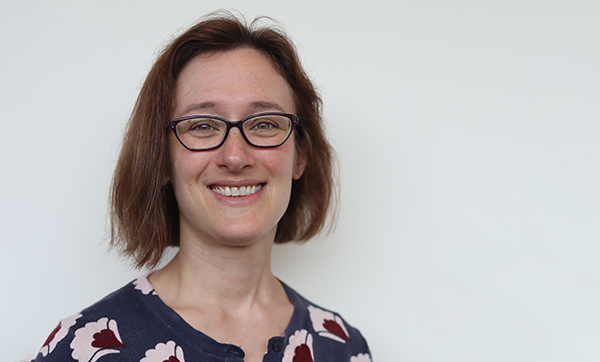Alum Studies Drug Safety as Lead Epidemiologist at FDA.

Rose Radin (SPH’09, ’14): After Epidemiology Course, ‘I Knew That I Found What I Wanted to Do’
Alum Rose Radin is the lead epidemiologist at the FDA’s Center for Drug Evaluation and Research.
School of Public Health alum Rose Radin (SPH’09, ’14) discovered a love for epidemiology as soon as she took her first course in the MPH program.
“The introductory epidemiology course fascinated me, and I knew that I found what I wanted to do with my career,” says Radin.
While earning her degree, she worked as a research assistant with Lauren Wise, professor of epidemiology, on the Black Women’s Health Study. “I had such a positive experience that I decided to pursue a PhD in epidemiology. More than six years after finishing my doctorate, I still feel like I am well prepared in epidemiology methods because of my training at BU,” she says.
During those six years, Radin’s training and experience in study design and analysis first led her to the Eunice Kennedy Shriver National Institute of Child Health and Human Development, where she spent three years as a postdoctoral fellow studying the effects of maternal metabolic risk factors and inflammation on fertility and pregnancy outcomes. She earned a Society for Epidemiologic Research award for her analysis of data from a clinical trial examining preconception low-dose aspirin to prevent pregnancy loss.
In 2017, Radin joined the US Food and Drug Administration’s Center for Drug Evaluation and Research (CDER), and now she serves as a lead epidemiologist in the Office of Surveillance and Epidemiology, whose mandate is to monitor and evaluate the safety of all marketed drug and therapeutic biologic products. She leads a team of epidemiologists who evaluate safety risks posed to consumers from the nonmedical use of drugs.
“We work to understand the risks to public health from prescription and nonprescription FDA-approved products,” says Radin. In recent years, the FDA has clarified that its benefit/risk assessment includes consideration of potential risks not only to patients prescribed drug products, but to the general public as well.
“National survey data have shown that most people who misuse a prescription drug are not misusing a drug they were prescribed themselves, they’re misusing a drug that they got from friends or family members, or maybe bought from someone else,” Radin says. The team uses traditional pharmacoepidemiology methods to analyze electronic healthcare data, as well as original analyses of other surveillance systems, such as surveys of people seeking treatment for opioid use disorder, or data from emergency departments for patients who experience adverse effects from drug use.
The multilayered crises resulting from the COVID-19 pandemic have also led to an increase in substance use disorder relapses, Radin says. “We’ve received reports of changes in treatment centers’ ability to deliver services—or stay open at all.” Her team is examining these reports and will gather data to help inform FDA’s response.
For students or alums interested in pursuing careers in pharmacoepidemiology and drug safety, Radin points back to the skills-based training she gained at SPH.
“Definitely take advantage of the epidemiology methods training that the department offers—and make sure to reach out to your networks,” she says.